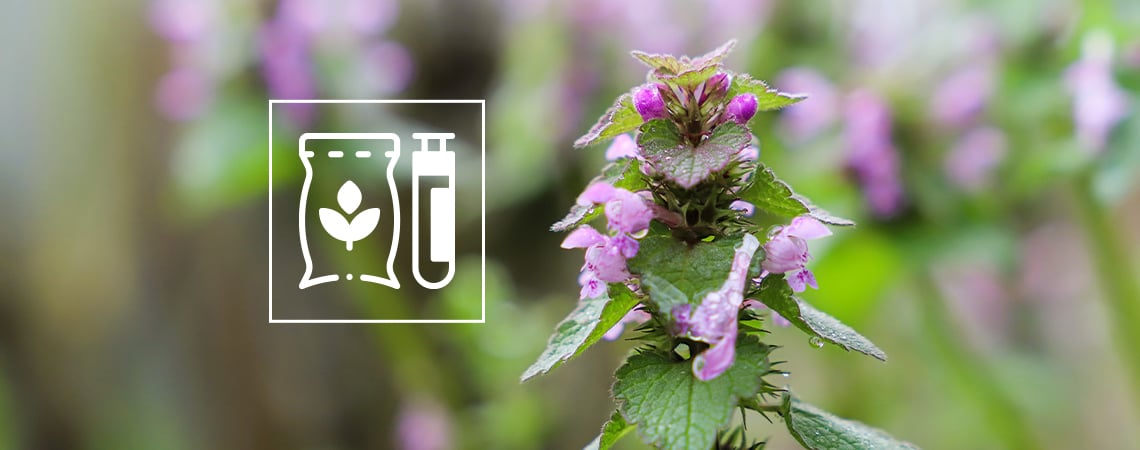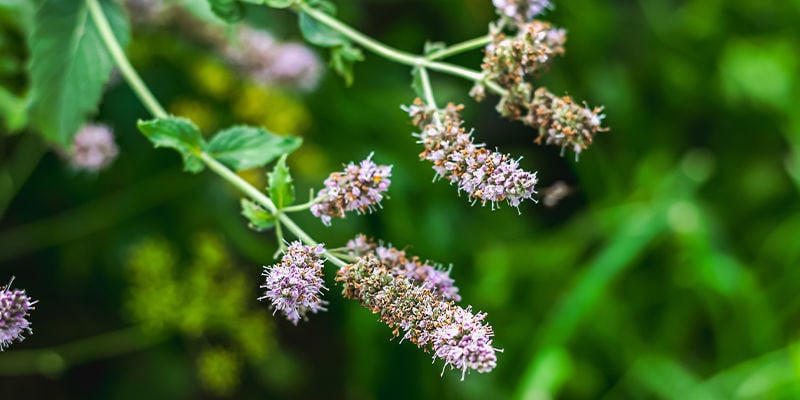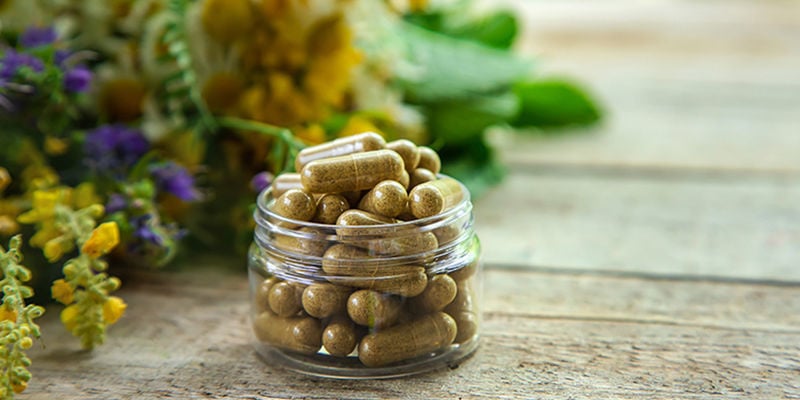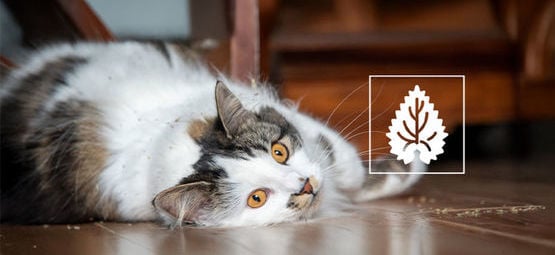
Catnip’s effect on humans: A complete guide
Catnip is famous for its wild effects on cats—but what about people? The answer might surprise you. Learn how humans can safely use catnip and what it could potentially help with.
It’s no secret that cats go crazy for catnip, but what about people? While people don’t get obsessive over this relative of mint, they may still be able to benefit from it.
In this article, we’re looking at how and why human beings might choose to consume catnip. From traditional herbal remedies to modern wellness trends, catnip is slowly gaining attention outside the feline world. We’ll explore its potential effects, uses, and whether it’s worth adding to your herbal toolkit.
Understanding catnip

You may well have heard conflicting stories about what happens when humans consume catnip. Some incorrectly claim that it can get you extremely high, while others say it does nothing at all.
Before we look at how catnip affects humans, let’s start with what the plant actually is.
What is catnip?
Catnip, or Nepeta cataria, is a perennial herb in the mint family. Native to Europe and Asia, it now grows widely across North America and other temperate regions. The plant has light green leaves, soft stems, and small, pale purple flowers.
Historically, humans have used catnip for centuries to support relaxation, soothe digestion, and ease various minor ailments. While cats go wild over the compound nepetalactone in catnip, humans respond quite differently. Instead of stimulation, catnip could potentially offer relaxing and mildly soporific effects in people.
How does catnip affect humans?

Catnip can affect humans—just in very different (and much calmer) ways than it does cats. If you’ve ever seen a cat manically rolling around with a catnip toy, and then viciously defending it, you’ll be relieved to know that this won’t happen to you.
But what can it do? And is it safe to consume catnip?
Is catnip safe for human consumption?
Yes—when used in moderation, catnip is generally considered safe for most adults. You can consume it as a tea, tincture, or herbal infusion. However, like all herbs, it’s important to follow dosing recommendations and consult a healthcare professional if you’re pregnant, breastfeeding, or taking medication.
Effects of catnip

Though catnip does not produce a euphoric “high” in humans like it does in cats, it may instead do the following:
- Promote relaxation
- Support digestion
- Ease physical discomfort/tension
Animal studies suggest catnip’s essential oils may have relaxing and antispasmodic effects, though more research in humans is needed (Sayyah 2009).
Health benefits of catnip for humans

Catnip contains several bioactive compounds that could potentially be utilised in a therapeutic context. Among its most notable constituents are nepetalactone, citronellol, linalool, limonene, and various flavonoids and tannins. These compounds have been studied for their effects on the nervous system, gastrointestinal tract, immune system, and more.
Although clinical research in humans remains limited, preliminary studies and traditional holistic preparations suggest that catnip may hold promise for a variety of potential uses.
Let’s take a closer look at these possible benefits.
Natural tension relief and relaxation
Herbalists have long used catnip for soporific purposes, particularly in European and North American herbal traditions. The active compound nepetalactone, which causes euphoria in cats, may interact with GABAergic pathways in humans. GABA (gamma-aminobutyric acid) is the primary inhibitory neurotransmitter in the human brain, playing a crucial role in reducing neuronal excitability and promoting calmness.
In animal studies, extracts of Nepeta cataria have been shown to exhibit central nervous system depressant activity, possibly helping to ease the body and reduce anxiety-like behaviours (Sayyah et al., 2009). While these effects haven't yet been definitively confirmed in human trials, herbalists commonly recommend catnip tea or essential oil as a nervine—an herb that supports nervous system health.
Catnip is often consumed in herbal infusions alongside other soothing botanicals such as chamomile, lemon balm, or valerian root, which may work synergistically to encourage a greater sense of mental ease.
Catnip as a sleep aid

Difficulty sleeping, or insomnia, is a widespread issue. Catnip tea has been traditionally used as a bedtime remedy due to its mild soporific and tension-reducing properties (Grognet, 1990).
The potential sleep-promoting effect may be linked to nepetalactone’s influence on the parasympathetic nervous system, encouraging the body to shift into a relaxed, pre-sleep state. Additionally, compounds such as linalool and citronellol, found in the essential oil of catnip, are also present in lavender and other sleep-supporting herbs. These terpenoids are known to exhibit soporific effects and have been studied for their role in promoting sleep quality and duration.
To try it yourself, simply steep dried catnip leaves in hot water (step-by-step instructions below). Drinking a cup of catnip tea roughly 30–60 minutes before bed may help you unwind and settle in for a more restful night.
Digestive health benefits
Traditional herbalists have long used catnip to support gastrointestinal comfort, especially in cases of bloating, cramping, indigestion, and flatulence (Chaudhary et al., 2023).
The likely mechanism here involves antispasmodic effects, which could reduce involuntary muscle contractions in the gut. These effects have been linked to flavonoids and essential oil constituents in catnip, which may act on the smooth muscle tissue of the intestines to ease spasms and discomfort.
Some of catnip’s phenolic compounds may also stimulate bile flow and mildly enhance digestion. Catnip is often used in digestive formulas alongside herbs like fennel, peppermint, or ginger, especially in post-meal infusions designed to settle the stomach.
Tinctures, herbal teas, or even topical abdominal compresses are common preparations for those using catnip to support digestive health.
Support for physical discomfort and immune function

Catnip contains several compounds believed to help with physical tension and the immune response. These include:
- Nepetalactone
- Citronellol
- Limonene
- Rosmarinic acid
- Tannins
Animal model studies have suggested that catnip essential oil and extracts may inhibit pro-inflammatory cytokines and oxidative stress markers, which are both key players in chronic inflammation and pain (Sayyah et al., 2009).
This could potentially make catnip helpful for tension headaches, menstrual cramps, and muscle soreness. In traditional European herbal practices, catnip was often infused into oils or added to poultices to create topicals for muscle aches and joint pain.
A warm cup of catnip tea might offer systemic relief, while catnip-infused compresses can be applied locally to areas of discomfort.
Does catnip help with cold and flu relief?
Catnip has also been used as a diaphoretic—a substance that promotes sweating—which may help the body regulate fevers during the early stages of colds or flu (Patel & Shah, 2023).
It also contains mild expectorant and decongestant properties, potentially aiding the body in clearing respiratory passages and easing symptoms like nasal congestion and coughing. Its warming and relaxing nature makes it a favourite in herbal cold formulas, particularly when combined with other soothing herbs like elderflower, yarrow, and peppermint.
For cold and flu support, try drinking hot catnip tea several times a day or using catnip in steam inhalations to help open the sinuses and soothe irritated airways.
How humans can use catnip
Interested in using catnip? There are many ways to take it, none of which are difficult. Let’s take a more in-depth look at how to use catnip and make it palatable for human consumption.
Drinking catnip tea

This is one of the easiest and most effective ways to experience catnip’s potential benefits.
How to make catnip tea
- Add 1–2 teaspoons of dried catnip leaves to a cup.
- Pour hot (not boiling) water over the leaves.
- Cover and steep for 10–15 minutes.
- Strain and enjoy.
The tea has a light minty, slightly earthy flavour. Pair it with chamomile or lemon balm for added effects. Drink up to three cups a day as needed.
Catnip in herbal remedies

You’ll often find catnip in tinctures, extracts, or capsules as part of herbal blends for sleep or relaxation. Combining it with other soothing, relaxing herbs enhances its effects.
Vaping catnip

Some herbalists suggest vaping catnip for a faster onset of effects without combustion. To vape catnip:
- Use dried, organic catnip (free of additives).
- Set your vaporizer to 150–160°C—the ideal range to release its volatile oils.
- Inhale gently and assess how your body responds.
Note: Vaping offers less research-backed evidence than tea or tincture use, and effects may vary.
Smoking catnip: Is it worth it?

Can humans smoke catnip? Yes. Should they? Probably not.
While it’s possible to smoke dried catnip, doing so is not recommended. It doesn’t produce a high, burns quickly, may irritate the lungs, and comes with all the normal negative health effects associated with smoking.
Instead of smoking catnip, consider safer alternatives like those listed above.
Possible side effects and precautions

While catnip is considered safe for most adults, there are a few things to keep in mind.
Potential side effects may include:
- Drowsiness
- Headaches (in high doses)
- Upset stomach (in sensitive individuals)
Avoid catnip if you are:
- Pregnant or breastfeeding (it may stimulate uterine contractions)
- Diagnosed with pelvic inflammatory disease or heavy menstrual bleeding
- Taking sedatives or medications that affect the nervous system
Stick to recommended doses (1–2 teaspoons of dried herb per cup of tea, up to three times daily) and consult your doctor if you have any concerns.
Catnip for people: A good idea?

Though catnip is best known for sending cats into a frenzy, it could also offer a range of gentle, natural effects for humans. Don’t rely on it to cure your ailments, but if you’re just looking for something to help you out, it may be suitable.
Try sipping a cup of catnip tea, blending it into a relaxing tincture, or exploring its use in herbal remedies. Just remember—while catnip could potentially help with a variety of issues, always use it mindfully and speak to a healthcare professional if you’re unsure.
- Jeff Grognet. (1990 Jun). Catnip: Its uses and effects, past and present - https://pmc.ncbi.nlm.nih.gov
- Patel, A., & Shah, M. (2023). Catnip: A magical herb – An approach towards the prevention of several diseases - https://www.researchgate.net
- Sayyah, M., Nadjafnia, L., & Kamalinejad, M. (2009/07/15). Water extract of Rheum officinale Baill. induces apoptosis in human lung adenocarcinoma A549 and human breast cancer MCF-7 cell lines - https://www.sciencedirect.com
- Zen Saleh Ibrahim, Rahma Qayssar, Sara Sardar, Eman jamal, Laza Saadi Mustafa Senjawi, Eron Sleman, Halo Fazil, & Omji Porwal. (2022/08/25). Catnip (Nepeta cataria L.): Recent Advances in Pharmacognosy, Cultivation, Chemical Composition and Biological Activity - https://jddtonline.info
-
 4 min
13 October 2023
Top 10 Healthy Herbal Teas
Besides boasting great flavours and mind-blowing aromas, herbal teas have long been utilised for their extensive range of potential wellness benefits. Read on to discover 10 fantastic, healthy...
4 min
13 October 2023
Top 10 Healthy Herbal Teas
Besides boasting great flavours and mind-blowing aromas, herbal teas have long been utilised for their extensive range of potential wellness benefits. Read on to discover 10 fantastic, healthy...
-
 6 min
4 July 2023
Top 10 Rare Superfoods To Boost Well-Being
Looking to take your healthy diet and lifestyle to the next level? Superfoods are packed with nutrients, vitamins, and minerals, and can help make an already healthy routine even better. Keep...
6 min
4 July 2023
Top 10 Rare Superfoods To Boost Well-Being
Looking to take your healthy diet and lifestyle to the next level? Superfoods are packed with nutrients, vitamins, and minerals, and can help make an already healthy routine even better. Keep...
-
 6 min
25 October 2019
Catnip: Everything you need to know
What is catnip, and why do cats go crazy for it? Explore everything about this beloved plant—from effects and benefits to tips on giving it safely to your feline friend.
6 min
25 October 2019
Catnip: Everything you need to know
What is catnip, and why do cats go crazy for it? Explore everything about this beloved plant—from effects and benefits to tips on giving it safely to your feline friend.
-
 7 min
16 August 2019
Top 15 Natural Herbs For Energy & Vitality
Natural herbs are an excellent way to stay energised. With the demands of today's fast-paced society, it's easy to rely on coffee and energy drinks to get through the day. Unfortunately, these...
7 min
16 August 2019
Top 15 Natural Herbs For Energy & Vitality
Natural herbs are an excellent way to stay energised. With the demands of today's fast-paced society, it's easy to rely on coffee and energy drinks to get through the day. Unfortunately, these...












 United States
United States










